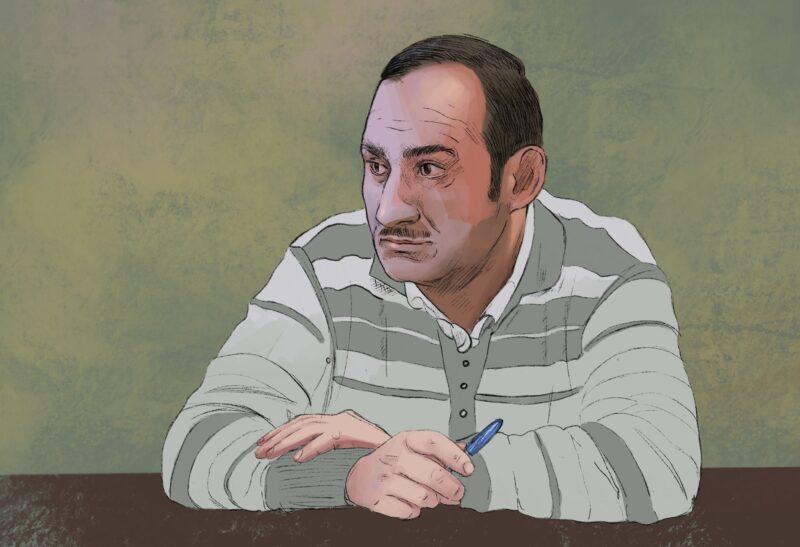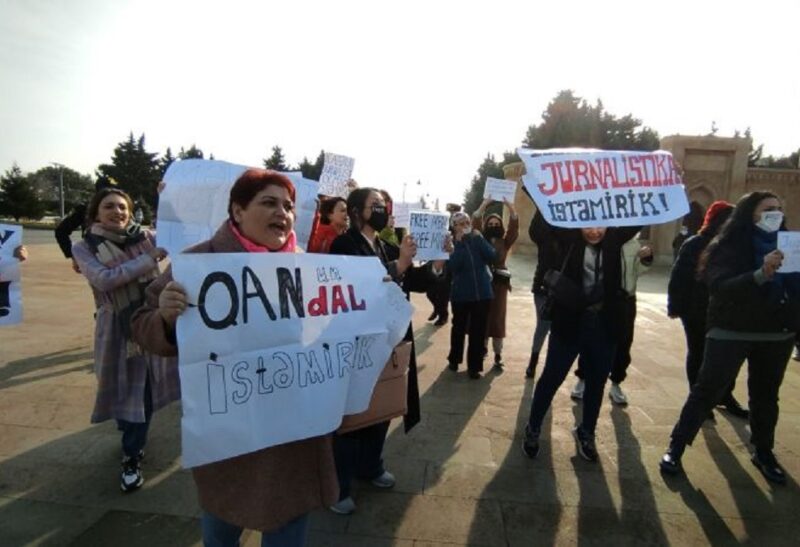

As Russian troops secure their positions in Crimea, Ukraine, information war is reaching its full capacity, and so do state propaganda and the government crackdown on independent media in Russia. Since the beginning of the Euromaidan protest in November 2013, the few remaining independent news outlets faced difficult times. The latest attack came this week with the firing of Lenta.ru’s editor-in-chief Galina Timchenko and the shutdown of opposition websites Grani.ru, Kasparov.ru and EJ.ru.
The crackdown
Timchenko was fired from her position on Wednesday, March 13, and replaced by Alexei Goreslavskiy, former editor of Vzglyad.ru, news website known as Kremlin’s mouthpiece.
Previously Goreslavskiy was in charge of government relations as deputy general director of Afisha-Rambler-SUP – the media holding that owns Lenta. The holding is co-owned by powerful oligarchs Alexander Mamut, once known as “the Yeltsin family banker,” who made his fortune on a variety of industries and is allegedly close to President Putin, and Vladimir Potanin – general director of Norilsk Nickel and president of Interros – mining, metals, energy, finance, retail and real estate conglomerate.
According to Timchenko, Mamut informed her of his decision during their meeting on Wednesday. The unexpected move came amid
the official warning
from the Federal Service for Supervision in the Sphere of Telecom, Information Technologies and Mass Communications (Roskomnadzor). The agency accused Lenta of publishing extremist material, referencing
an article
that contained a link to an interview with one of the leaders of Ukrainian right-wing organization “
Praviy Sektor
” (Right Sector) Dmitriy Yarosh, who was wanted in Russia as of earlier this month for “inciting of terrorism.” Lenta removed the link as soon as the warning was issued, but Timchenko was fired nevertheless. In response, Lenta published a letter signed by the entire staff condemning Timchenko being fired, and more than half of website’s employees already resigned in protest.
When in March 2013 Afisha-Rambler and SUP-Media merged their companies, bringing together Lenta and another news outlet Gazeta.ru,
concerns were voiced
that it could lead to tighter editorial control over both. Then in September 2013 Mamut replaced the editor-in-chief of Gazeta, and the publication seemingly changed its editorial policy to the one less critical of the Putin administration.
Roskomnadzor did not stop on Lenta. Earlier today
it blocked
three opposition websites of Grani.ru, Kasparov.ru and EJ.ru. In its official statement the agency claimed that the websites contained “incitement of illegal activity and participation in public events held in violation of the established order.”
In addition Roskomnadzor decided to block opposition leader and blogger Alexei
Navalny’s account
in Livejournal (also owned by Afisha-Rambler-SUP) for violating his terms of house arrest. Navalny, who was placed under house arrest in February, is not permitted to use the Internet or receive visitors until the end of April.
The crackdown originally began in early February with TV Rain, the only independent TV channel,
which covered human rights violations, anti-government protests, as well as cases of Pussy Riot, Khodorkovsky, Bolotnaya, and Navalny. Just a few weeks prior, in late January, TV Rain published a controversial poll asking its readers whether giving up Leningrad (Saint Petersburg) during the World War II would have saved thousands of lives lost in the city’s blockade, which stirred outrage in political circles and nationalistic groups. Although the channel quickly took the poll down, TV Rain was pulled from all major satellite services for no official reason and is now fighting for survival. Speaking to the journalists in early March the channel’s general director Natalya Sindeyeva said they would only be able to stay afloat for a couple more months.
Meanwhile in mainstream
Since unrest began in Kiev, Russian public TV channels, including ORT, NTV and Russia-1, all of which are widely popular in Ukraine, pushed the Kremlin’s agenda. In a unified choir, they framed the protesters as followers of Stepan Bandera, the leader of Ukrainian nationalists in early 20
th
century, and insisted the movement was fascistic in nature. Ukrainian protesters, politicians and media continuously disregarded the allegations, but these reports kept coming.
Pro-government talk show host and pundit Dmitriy Kiselev of Russia-1 became one of the stars of anti-Maidan propaganda. In his evening show
“Vesti Nedeli”
(Weekly News), Kiselev manipulated footage from Kiev’s Maidan in order to depict protesters as a violent mob, thereby justifying the actions of security forces. The Committee on Journalism Ethics of Ukraine submitted
an official complaint
on Kiselev. According to the complaint, Kiselev’s reports, by taking certain visuals out of context and ordering clips with the wrong chronology, “distort the meaning of what was said and serve as an attempt of the authors to create an ‘evidence base’ to support their judgment.”
In order to fight misinformation, Ukrainian activists created a website
Stopfake.org
where they exposed and debunked such reports. For example, on March 3, one of the leading Russian news agencies RIA
reported on 675,000 Ukrainians
who were allegedly forced to flee to Russia amid the protest. Journalists from Stopfake called the Russian Federal Migration Agency, only to receive a
drastically different number
of migrants: 16 people.
As if propaganda for “grown ups” was not enough, on its
Tuesday, March 11, episode
, Russia’s most famous children’s TV show
“Spokoynoy Nochi, Malishi”
(Good Night Kids) featured one of its famous puppets, Filya the Dog as deciding to join the army to serve in border troops. Thankfully, the show’s hostess former Miss Universe Oksana Fedorova, who first explained the function of border troops, informed the dog that it needed to reach a certain age to enlist. The puppet did not end up going, but the message was out there.
The outcome
According to
the survey
conducted by Levada-Center, independent, non-governmental research center 70 percent of Russians admit to not understanding the core of the conflict, but 63 percent consider media coverage of the conflict by Russian news media objective. Among the surveyed, 58 percent support the invasion of Crimea, and 79 support the referendum.
Those figures indicate a dangerous trend – propaganda machine has served its purpose. Russian independent media is neither widely spread, nor influential enough to affect public opinion anymore. Recent crackdown is just a precaution to make sure that nothing will interfere with President Putin’s plan on Ukraine. The details of the plan might not be known yet, but one thing is clear – in order to make it happen, President Putin needs Russia to be the country of serving puppets and nothing to read.



